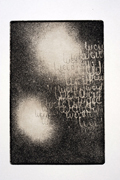Aphasia is a language disorder where people have problems speaking and writing and also understanding both the spoken and written word.
Aphasia is not a condition in itself, rather it a symptom caused by pre-existing brain damage. Strokes, head injuries, and conditions that can damage the brain over time, such as Alzheimer’s disease, or a brain tumour, can all lead to aphasia.
Aphasia is a common complication of stroke. It is estimated that 1 in 5 of all stroke sufferers will experience some degree of aphasia after their stroke and every year in the UK 11,400 people become aphasic due to stroke.
The effects of aphasia can vary widely; some experience only mild effects, perhaps being unable to think of certain words, whereas some are unable to read, write or speak at all. Some can speak fluently but may be unaware that what they are saying doesn’t make sense.
Aphasia does not mean that a person with aphasia necessarily has reduced intelligence or has any learning disability. Indeed, many people with aphasia can remain entirely rational, but the fact that they can’t express themselves, makes aphasia such a traumatic and frustrating experience for them and their family. Even everyday tasks can become impossible, such as making telephone calls, shopping, or having a conversation.
This is what happened to me ….
I found I could not speak. In my head I was completely lucid but the words kept flapping about like fish out of water. I could not get hold of them enough to speak them.
All the words were there, but it was like a library after vandals have got in and have thrown all the books on to the floor: you know the book you want is there somewhere - but WHERE?
I didn’t know that I would ever be able to speak again, but very gradually it started to come back. First I managed to retrieve ‘yes’ and ‘no’, but I did not always get it right and had to correct it with hand gestures. Later on, my call-button didn’t work, and it took me three days to work out that I had to find the word ‘bell’. It was all very, very difficult.
I did not always understand what was being said to me, and processing the words was very slow: if a question was repeated too quickly or using different words, I did not recognise it as the same question and had to go back to the beginning to understand it. I was also very easily distracted by other conversations and extraneous noises.
It all took huge amounts of energy and I could not speak above a whisper. As for reading or writing … It was all exhausting - and frightening.

Lucid, etching
Even though I couldn’t speak and my thought processes were very slow, in my head, I was lucid.
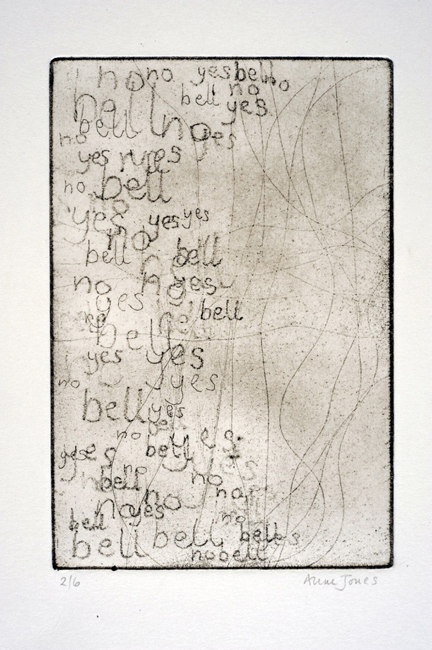
Yes, no, bell, soft ground etching
First three words retrieved out of the tumbled mass in my head
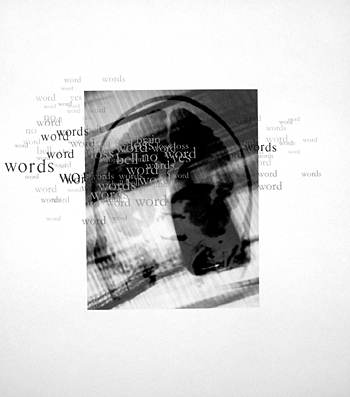
Aphasia 4 (2007), multi media
The words spill beyond the frame of the photograph (or is it the head?) but make no sense.
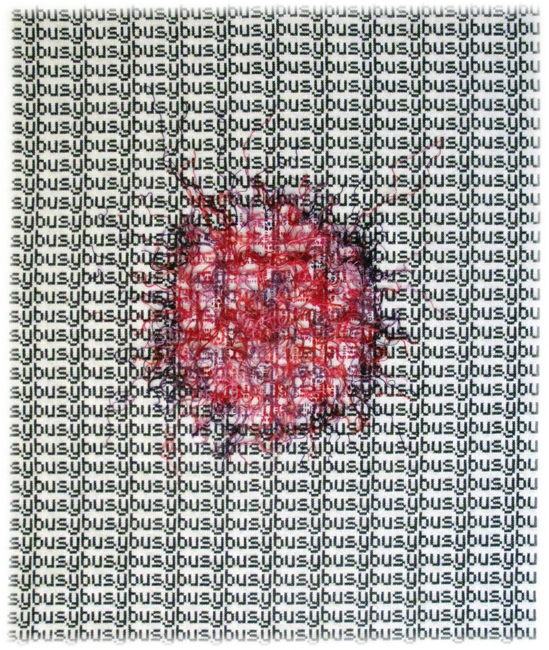
Beyond words, stitched textile
Interruptions in the meticulous, orderly function of the brain. Words are lost or not understood.
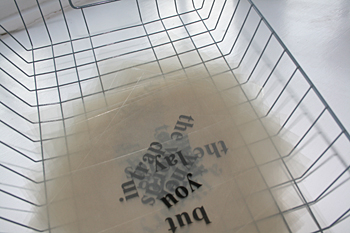
Aphasia 6 (2009), multi media
The words were all there but I couldn’t find the ones I wanted, because the ‘filing system’ in my head was mangled up.
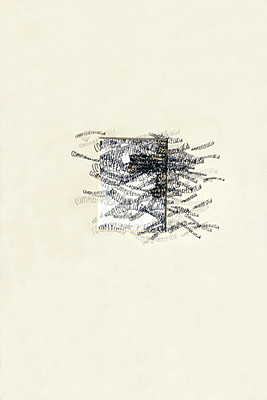
In my head . . . 1 (2009), multi media
In the context of aphasia, words - whether spoken or written or read - seem to me to be a two-way communication between the brain and the outside world. The series of images, ‘In my head …’, explores ways to develop a visual language to explore this idea. Maybe the hole cut in the mount board is the interface between inside and outside – and between back and front.
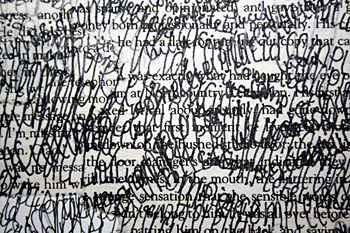
In my head . . . 2 (detail) (2009), multi media
Because she knew I couldn’t speak, a kind visitor brought me a book to read ‘to while away the time’. I could see that there were words on the page but they made absolutely no sense. I gave up.
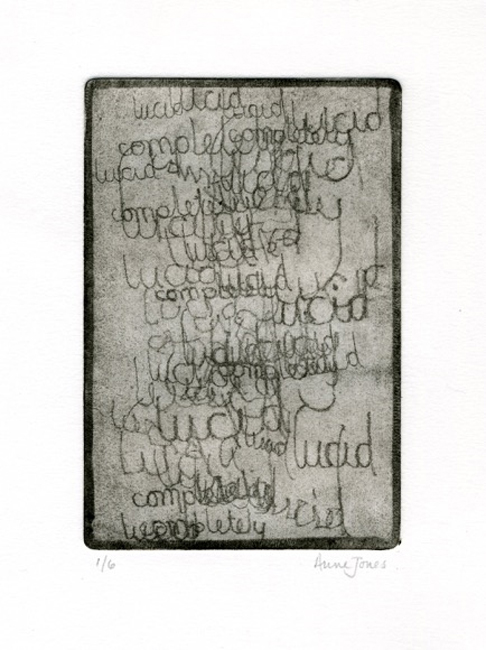
Completely lucid, soft ground etching
As the ambulance took me to hospital, I kept repeating this phrase so that the paramedics would know that in my head I was completely lucid. Then that too faded away and the blackness began.
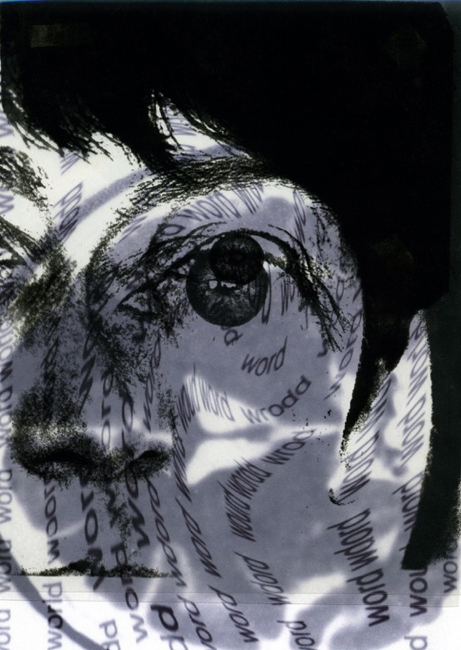
Word, wrodd, world, digital photograph
Swirling of words like leaves caught in a whirlpool. But even if you are able to fish them out, what do they mean?
